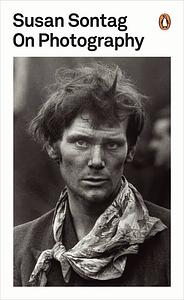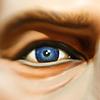Take a photo of a barcode or cover
This is my first time reading Susan Sontag and now I understand why her name is referenced so much. This book is as titled - On Photography. Written in the early 70s, the observations and analysis are just as true today in the age of digital photography as when she wrote. I do think Ms. Sontag can be too jaded but for at least 90% of it, she's dead on. Much of this I read and had to admit as an amateur photographer, I'm guilty as charged. However, that somehow makes me feel more mainstream as if I'm not such an outlier after all. The chapter, Melancholy Objects, includes when discussing how surreal photography is, "In fact, it has--like mainstream Surrealist taste itself--evinced an inveterate fondness for trash, eyesores, rejects, peeling surfaces, odd stuff, kitsch." Ms. Sontag see the pathos of mortality and not the pleasure of looking back. "Through photographs we follow in the most intimate, troubling way the reality of how people age. To look at an old photograph of oneself, of anyone one has known, or of a much photographed public person is to feel, first of all, how much *younger* I (she, he) was then." She does seem to miss that looking at photographs from times past is a way to connect with those photographed (ie all those celebrity pictures, posters, etc. which represent aspirations and desires). Since photography was invented and as advances were/are made, she discusses the importance of images to validate experiences, to see things not personally experienced, and to advertise. She describes the aggressiveness of photography, and I have to wonder what her take would be now as privacy issues have increased with the ease and distribution of digital photography. It's no secret that most people like to look their best for a picture versus the desire photographers may have for a candid and/or unflattering portrait to capture a mood. Diane Arbus's work is discussed quite a bit in this book. (Although this book has no pictures other than one on the cover, I'm sure the photographers' work referenced can be found on the internet. I know I have seen most of the referenced pictures before.) For anyone seriously interested in photography or even cultural history, I highly recommend this book.
Susan Sontag's essay collection On Photography was originally published as a series of essays over a five year period between 1973 and 1977. It's regarded as one of the more significant books to tackle why people take photographs, and contrasts the works of photographers including Eugene Atget, Dorothea Lange and the FSA, Edward Weston, Robert Frank, Diane Arbus and others. Wide-ranging, the book also discusses the politics of photography (primarily American but also bringing China into the discussion), the notion that photographers cannot help but be voyeuristic (by taking photographs they by default remove themselves from being active participants in what they do), and why photographs are different from paintings. The book is short, and despite being written such a long time ago, has much within to contemplate. Sontag wrote a followup in 2003, titled Regarding the Pain of Others, which I'm now seeking out. Highly recommended, and well worth revisiting.
This book is a real argument. It lays out endlessly the limitations and mimetic quality of the camera, it's relationship to art, its eventual inclusion in art. Sontag doesn't think much of cameras or photography ultimately. If you do this book is a gut check, a sure fire list of things not to do with a camera, and a deep meditation.
informative
inspiring
reflective
slow-paced
I keep on coming back to this book for wisdom and depth. I recommend that you read this at least once. A brilliant read.
I think I might get more from this if I were more well-read. Balzac, Proust, etc. Interesting, and clearly I'm not smart enough to understand half of it, but my simplistic mind has it boiling down to "is photography art or not?"
challenging
informative
reflective
slow-paced
While I agree with Sontag’s notion of the photograph’s relationship to reality, I don’t love how most of the photographers she discusses are men. The only woman photographer she spends significant time with is Diane Arbus, who Sontag criticizes for a sort of fetishizing of freaks. She accuses Arbus of seeking out freaks because arbus herself had a privileged upbringing. But nowhere in the book does Sontag consider what it might feel like for a person who has never seen themselves rendered in a photographic image to be photographed. I’m not a huge fan of the representation as rights argument, but I do think Sontag is unable to look past how reliably cisgender white women have been photographed to consider what a person who does not share her identity might find in a photograph.
This book bites and kicks and knocks and wrecks. And I love that.
Astonishingly relevant still. The perfect read if you want to question why you Instagram everything you see.
informative
reflective






